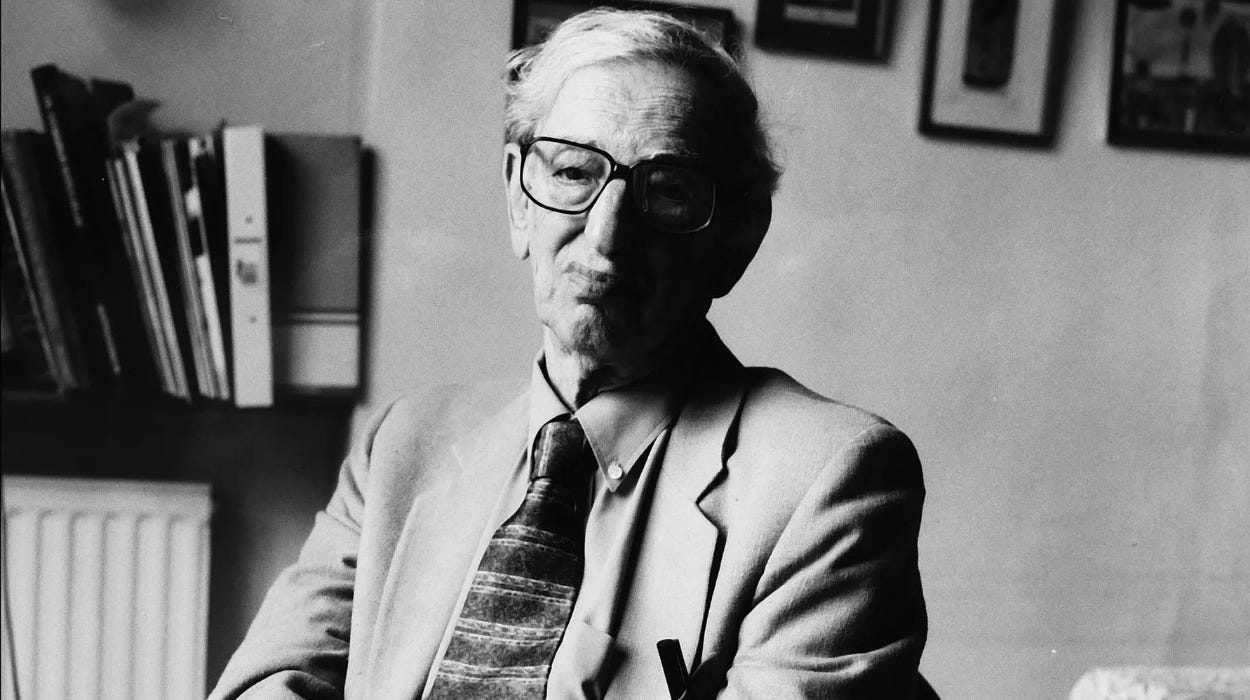Eric Hobsbawm on Nationalism and Distorting History: A Critical Reflection
An excerpt from "Hobsbawm: A Life in History," broadcast on BBC 4 on April 12, 2012.

In a thought-provoking segment from "Hobsbawm: A Life in History," broadcast on BBC 4 on April 12, 2012, the late distinguished historian Eric Hobsbawm, interviewed by Simon Schama, delved into the intricate challenges and distortions facing the study of history. In this conversation, Hobsbawm highlighted the emergence of identity-based histories and the troubling rise of nationalism.
He discussed the critical distinctions between fact and fiction in historical narratives and stressed the importance of a critical approach to the study of history. Citing examples such as Georgia, Hobsbawm illustrated the ways in which nationalism and identity politics can distort historical truth for political ends. His insights underscore the significant responsibilities that historians must undertake to combat these manipulations. Below is the excerpt from his interview:
“What I think got lost, particularly since the 1970s, was someone to uphold the basic commandments of good history. I mean, above all, the fact that history is about change, and the change how we started off in caves or leaving Africa, and ended up now.
Then, I think one of the things that tended to get lost is the sense of difference, which is basic, between fact and fiction, between what actually happened, and that there was something that actually happened, and what either didn't happen or what we would like to happen. It's difficult to combine asking questions about history and narrative. And it's true that narrative is absolutely essential because time is the essence. What happens, and what happens before, and what happens after is absolutely central. Without chronology, there can be no history. And you have to know this even as you ask questions and set out to answer them.
No serious historian of nations and nationalism can be a committed political nationalist... Nationalism requires too much belief in what is patently not so.
"Nations and Nationalism Since 1780: Programme, Myth, Reality". Book by Eric Hobsbawm (p. 12), May 24, 1990.
Well, now the other thing that I think has developed in the past 30-40 years is much nastier, and that is, you might say, the development of identity history, which largely amounts to identity myths, mythology. Which nationalism, or ethnic, is the most dangerous because it covers, you know, politically the most dangerous. And in fact, we've had some of the worst political results being won by people who take over new countries as professional historians, as in Georgia and in Croatia, you see. And therefore, they try and impose an essentially mythological view. And that poses new responsibilities on historians. What they need is skepticism, even of eyewitness reports, and of themselves.
But what they do need, especially today, in the past few years, is to be militant against the mythologization, and particularly the mythologization by governments and politicians.”
“The true test of a historian is his ability to separate myth from reality, fact from fiction.”
― Eric Hobsbawm
Further readings:
+ The value of the past: myths, identity and politics in Transcaucasia
by Victor A. Shnirelman
+ Also see: Book Review by George B. Hewitt | The value of the past: myths, identity and politics in Transcaucasia
+ In Defence of the Homeland: Intellectuals and the Georgian-Abkhazian Conflict
by Bruno Coppieters
+ Nationalism, politics, and the practice of archaeology in the Caucasus
by Philip Kohl and Gocha Tsetskhladze
+ Zviad Gamsakhurdia: “Abkhaz Nation Doesn’t Exist!”
+ Rewriting History? A Critique of Modern Georgian Historiography on Abkhazia
by Stanislav Lakoba



